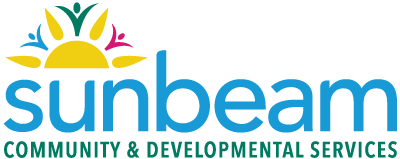Accessibility Policy & Standards
Accessibility Policy Statement
“Several laws in Ontario address accessibility and some requirements have existed since the 1980s. Since then, progress on accessibility has been made in some areas and by some organizations.
Despite this, accessibility remains limited. People with disabilities still do not have equal access to services, employment, transportation, information or buildings that others in Ontario enjoy. They cannot count on accessibility being available. The Accessibility for Ontarians with Disabilities Act, 2005 was passed with the goal of creating standards to improve accessibility across the province.”
Excerpt from the AODA Customer Care Guide
The AODA sets out a framework by which all organizations (business and non-profit) will work towards making Ontario fully accessible to all Ontarians by 2025. The goal is to ensure that people with disabilities have the same kinds of opportunities to participate in Ontario society, as people without disabilities.
This law was developed to :
As such, the Province of Ontario has created and will enforce certain mandatory “accessibility standards” that businesses and organizations that provide goods and services to people in Ontario have to meet.
These standards reference the full range of disabilities, including physical, sensory, health, mental health, developmental, medical, learning, or injury, which may or may not require an assistive device or service animal.
Standards have been developed in three areas:
Standards will be developed in the future for Building Environments.
Standards in each area are unique and legislated “Regulations” specify the elements that organizations must comply with in order to make goods and services equally accessible to those with and without disabilities.
Sunbeam Community & Developmental Services, and all of its programs and departments are committed to ensuring that its services and supports to individuals, and access to such services, their environments, their employment practices and their information/communication strategies follow legislative requirements.
This commitment is supported by an organizational Strategic Plan and Policies and Procedures. These formal documents include organizational Vision, Mission, Values and Strategic Priorities which collectively recognize the dignity, independence, equality of opportunity, and right to integration into the community, of all citizens who approach us.
A Multi-Year Accessibility Plan has been developed to identify processes, strategies and commitments which ensure Sunbeam’s ongoing compliance with Provincial Standards, as well as associated Sunbeam Policies which are reviewed and updated regularly to keep pace with any changes to accessibility legislation that may occur. A copy of the organization’s Multi-Year Accessibility Plan may be requested via written, verbal or electronic means.
Refer to policy: AD-ge-109
Statement of Customer Services – Accessibility Standards
In concert with our Mission, Sunbeam Community & Developmental Services strives, at all times, to provide goods and services in a way that respects the dignity and independence of people with all disabilities.
Communication
Assisted Devices
Use of Service Animals and Support Persons
Notice of Temporary Disruption
Training of Staff
More specifically, this training will include:
Sunbeam Community & Developmental Services will provide ongoing training if/when policies and procedures are changed and will keep records of the training provided.
Feedback Process
Customers can expect a response from the Chief Executive Officer, or delegate, within two business days of its receipt. Such response shall be communicated via written, verbal or electronic means, being in a format that takes into account the disability (if any) that the feedback provider has.
Refer to policy: AD-ge-111
